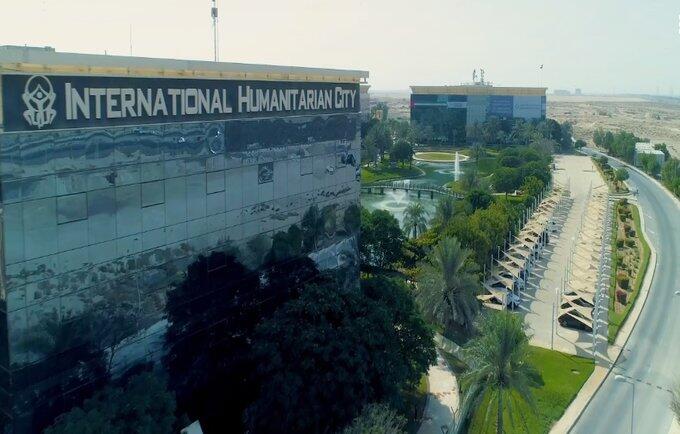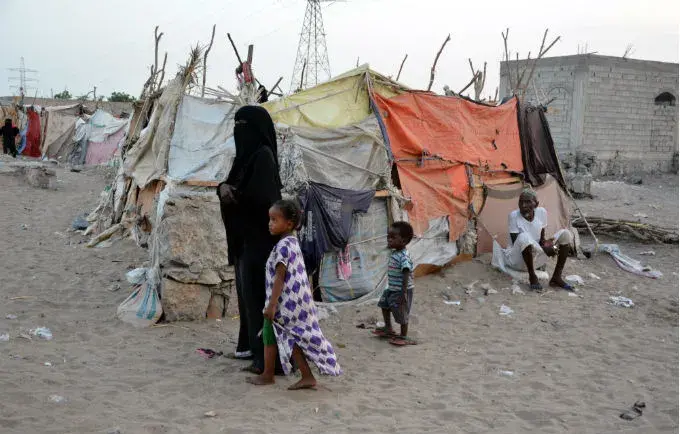Dubai, February 10, 2019-
UNFPA, the United Nations Population Fund opened a new liaison and partnerships office in Dubai’s International Humanitarian City (IHC) in the United Arab Emirates (UAE). This office is the first for UNFPA in the UAE and will be under the organization’s office for the Arab region. Generously hosted by an in-kind contribution from the Government of Dubai, this liaison office will seek to strengthen existing partnerships and establish new ones in the countries of the Gulf Cooperation Council, including the UAE.
UNFPA, the United Nations reproductive health and rights agency, works in more than 150 countries which are home to more than 80% of world population. “Being able to rely on the UAE’s advances in the areas of development and humanitarian relief will hopefully allow us to reach many more women and girls in need with services related to their health, protection and wellbeing” said Dr. Luay Shabaneh, UNFPA’s director for the Arab region.
UNFPA programmes in development and humanitarian contexts promote women’s reproductive and maternal health, prevent gender-based violence (GBV), support youth empowerment, and conduct data collection and analysis that are essential for development planning and for humanitarian response. UNFPA’s technical and operational support worldwide follows the Plan of Action of the International Conference on Population and Development (ICPD 1994) and its later reviews, as well as the 2030 Development Agenda of the Sustainable Development Goals (SDGs).
In humanitarian emergencies UNFPA programmes partner with national and international actors (including the UAE) to provide safe deliveries and antenatal and post-partum care and family planning services. These programmes also address GBV prevention, protection and response, while prioritizing the well-being of displaced and refugee populations. In 2018 alone, more than 15 million people received UNFPA-supported life-saving reproductive health services, supplies and information in over 55 countries affected by humanitarian crises worldwide. That included the support of clinics, mobile clinics, training of health personnel and midwives, procurement of medicines and medical equipment/commodities, establishment of women and girls’ safe spaces (protection service centers), and preventing and addressing consequences of GBV. “The UNFPA office at IHC is of great significance in fostering cooperation with the UAE-Dubai, and IHC as a unique humanitarian hub at the global level” added Ms. Sherin SaadAllah, the Regional Adviser for Resource Mobilization and Partnership, UNFPA.
Founded in 2003 by His Highness Sheikh Mohammed bin Rashid Al Maktoum, Vice-President and Prime Minister of the United Arab Emirates and Ruler of Dubai, IHC is the largest humanitarian hub in the world. Chaired by HRH Princess Haya bint Al Hussein, it is a non-profit, independent, humanitarian free-zone Authority hosting more than 80 members comprised of humanitarian organizations and commercial companies. It plays a pivotal role in facilitating rapid relief and first responses to crises at a global level efficiently.
Benefiting from the position of Dubai as a hub, it offers an innovative approach to support humanitarian response through its facilities, warehousing and close-knit network of partners in the private sector, local community, and government. In early 2017 and in light of the growing demand for aid and the need of agencies for additional warehousing and logistics support, HH Sheikh Mohammed Bin Rashid Al Maktoum approved the expansion of IHC. The move will see the facility grow by more than 300,000 square meters.
The complementarity between UNFPA and IHC in reaching out to the most in need, affected by crises at the global level is a driving motivation in concluding the current cooperation, and opening of the UN Agency Office. Humanitarian action must bring together all people who act in good faith trying to alleviate the suffering of people in dire need especially women, children and the elderly – UNFPA and IHC have joined forces to make this happen.
For more information, please visit: www.unfpa.org and www.ihc.org



